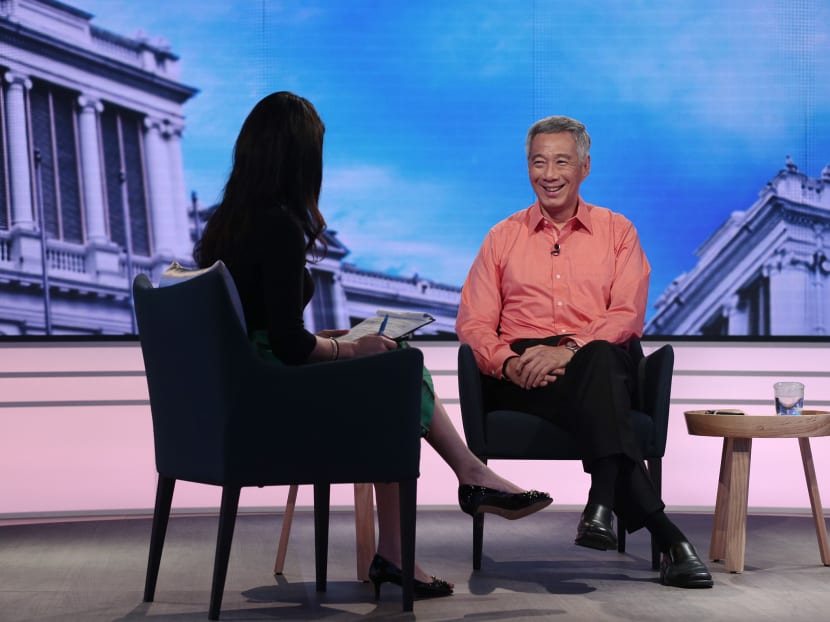Changes to Elected Presidency not meant to keep out 'difficult' people
SINGAPORE – Prime Minister Lee Hsien Loong rejected suggestions that the changes to the Elected Presidency (EP) were meant to keep out individuals whom the Government would find it hard to work with, as he noted that no system can be guaranteed to keep out “difficult” people.
SINGAPORE – Prime Minister Lee Hsien Loong rejected suggestions that the changes to the Elected Presidency (EP) were meant to keep out individuals whom the Government would find it hard to work with, as he noted that no system can be guaranteed to keep out “difficult” people.
Nevertheless, he reiterated his criticism of the losing candidates in the 2011 Presidential Election (PE) for making unrealistic promises during their campaigns.
“Even if I raise the standards, I cannot guarantee that nobody who is going to be difficult will become president,” said Mr Lee in an interview with Mediacorp which was aired on Sunday (Sept 4).
“Wherever you cut off, there will be somebody, even a former minister or a former judge or somebody who may have run a very big company (who) may have his views and may clash with the Government.”
Former People’s Action Party Member of Parliament Tan Cheng Bock, who received the second highest percentage of votes in the 2011 PE, had declared in March that he intends to make another run for the Istana. With the bar for the qualifying criteria set to be raised significantly, as Mr Lee put it, there are doubts whether Dr Tan would qualify.
Mr Lee emphasised that the EP scheme had to be designed such that there was a “best chance of success”. For that to happen, capable individuals – or as he put it, “good people” – had to be standing for public office. “It’s not a guarantee, but it’s the ideal we have to aim for,” he said during the hour-long interview.
Looking back at the 2011 PE, Mr Lee noted that the unrealistic promises made by the losing candidates were based on their lack of understanding of the President’s role and powers.
Four candidates took part in the polls: Former Deputy Prime Minister Tony Tan, who eventually won the election and is now the President; Dr Tan Cheng Bock; former NTUC Income CEO Tan Kin Lian; and former senior civil servant Tan Jee Say.
“Maybe they did (understand the President’s role) but they thought (making) these statements would help them to win the election,” said Mr Lee.
He added that such overpromises would cause the political system to malfunction, as the President would hinder the Government’s work.
Stressing that there can only be one government, Mr Lee said: “The President has certain roles and duties which are to hold the second key on money and on people, but not to go and check the Government or tell the Government what it is supposed to do.”
The Prime Minister acknowledged that during an election – no matter what the purpose it has been called for – sentiments brewing in the background could creep in and sway voters.
Citing the Brexit referendum in June – which ended with Britain voting to leave the European Union – Mr Lee said the polls were influenced by discontentment over issues such as immigration, and that was enough to change the country’s fate.
“You can have different ways of trying to mitigate this in the way the election is conducted, or in what candidates have to declare that they know what the purpose of this (polls) is … but you cannot entirely remove that (sentiment),” said Mr Lee.
The same situation could unfold in Singapore. “There’s no guarantee that we are immune from all these pressures or from all these sentiments,” he added.







